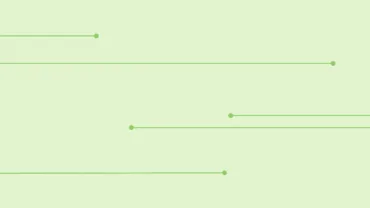Hard work is the hallmark of success. Or is it? Lawyers and other legal professionals spend much of their time on non-billable work, which is often unproductive and unsatisfying. The key to improving profitability, job satisfaction and productivity levels is to work smarter, not harder. But first, it’s important to recognize areas of unproductive work and identify solutions that work best for you.
A law firm’s work is never done
Working long, solitary hours is seen as part and parcel of being in the legal profession – there is a need to impress managers, colleagues, and clients. Unproductive work takes up many of these hours – hours away from tasks that would make lawyers happier, as well as more productive. Let’s take a quick look at the differences between unproductive and productive work.
Unproductive work includes tedious, low-value tasks that may leave you feeling exhausted and burnt out. You may find yourself asking, “Why am I doing these tasks?” and wondering what other work you could be completing instead, which is a red flag that unproductive work is dominating your day. Some examples of this type of work may include process-related elements such as manually creating tasks, sending repeated emails, moving and copying files, legal service intake, client onboarding, and more. These tasks all need to be completed, but can be re-engineered using simple workflow automation tools.
On the other hand, productive work is meaningful work that can improve job satisfaction. It may be more client-facing, visible work that helps boost your reputation as well as feelings of accomplishment. Once unproductive and tedious manual processes are streamlined, there is more capacity to complete work that has higher value to your firm and your client – and is meaningful to you.
4 tips to increase productivity
Here are some actions you can implement in your day-to-day that can move you towards more productive ways of working.
1. Be strategic about your day
First, it’s important to understand how you work and when you’re most productive so that you can use your energy efficiently. Some people can get much more done first thing in the morning, while others are more productive in the afternoon. Does your lunch break lower your productivity for the rest of the day, or does it boost your motivation? Are you ready to tackle difficult tasks first thing in the morning? Or would you do better at these tasks later in the day? Knowing how and when you work best is key to a productive day.
2. Take breaks
It’s important to take breaks. Nobody can work incessantly and still be expected to perform at 100%. Taking breaks to stand up and stretch or walking away from your desk can allow you to re-focus and re-energize, which allows you to come back to your work with a clearer mind to finish your work.
3. Apply the 80/20 rule
You can also apply the 80/20 rule, also known as the Pareto Principle: 80% of your output comes from 20% of your input. In other words, you can maximize efficiency by focusing your efforts, energy, and resources on priority items that will yield the biggest results first. To do this, you need to identify your most important tasks, as well as tasks that generate most of your results, and focus on these first, rather than devoting much of your energy to low-value tasks that won’t deliver many long-term benefits.
4. Invest in the right technology for the task
Many unproductive tasks are unprofitable, monotonous, and manual, however; they can easily be automated using technology such as HighQ. This adaptable legal technology makes the entire team’s job more efficient – from CIOs and IT leaders to managing partners, lawyers, and knowledge management leaders.
Take the small steps towards greater productivity
HighQ helps you create greater operational efficiencies by turning time-consuming, repetitive tasks into automated, intelligent processes that not only boost productivity but strengthen your legal operations and workflow, enable seamless collaboration and insight sharing, and improve engagement with clients.
While decreasing the amount of unproductive work that’s done won’t happen overnight, small steps can be taken to prepare for a more productive, more successful future for your firm and your clients.
In a Thomson Reuters webcast, legal professionals from four firms had a conversation about how they use HighQ to boost their work productivity, collaboration, and competitive edge. Watch the webcast on-demand today to hear the full conversation.






